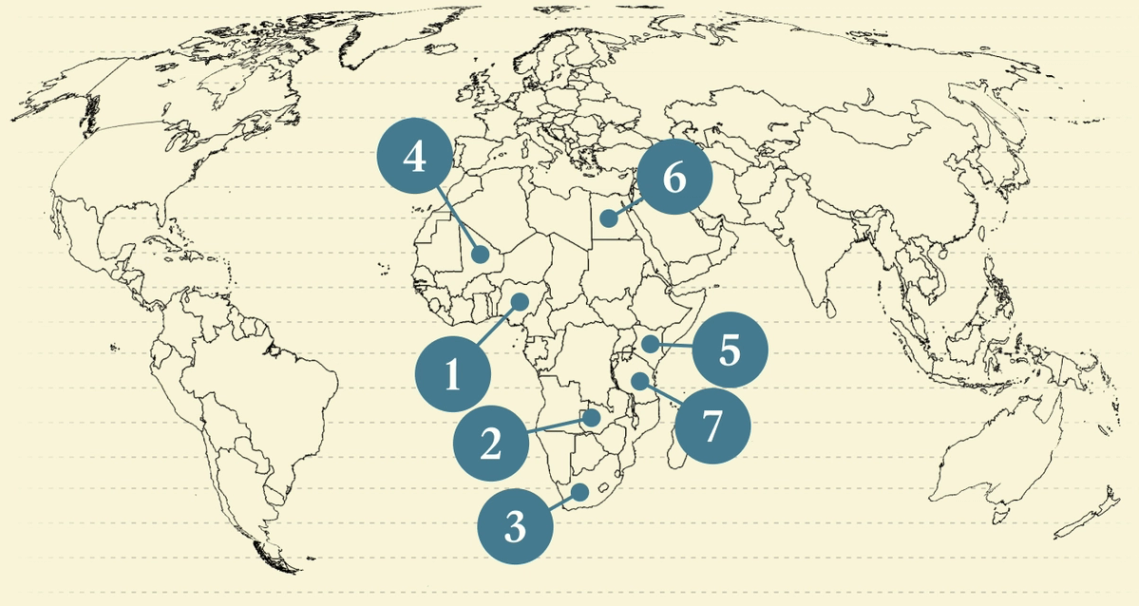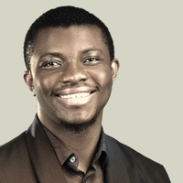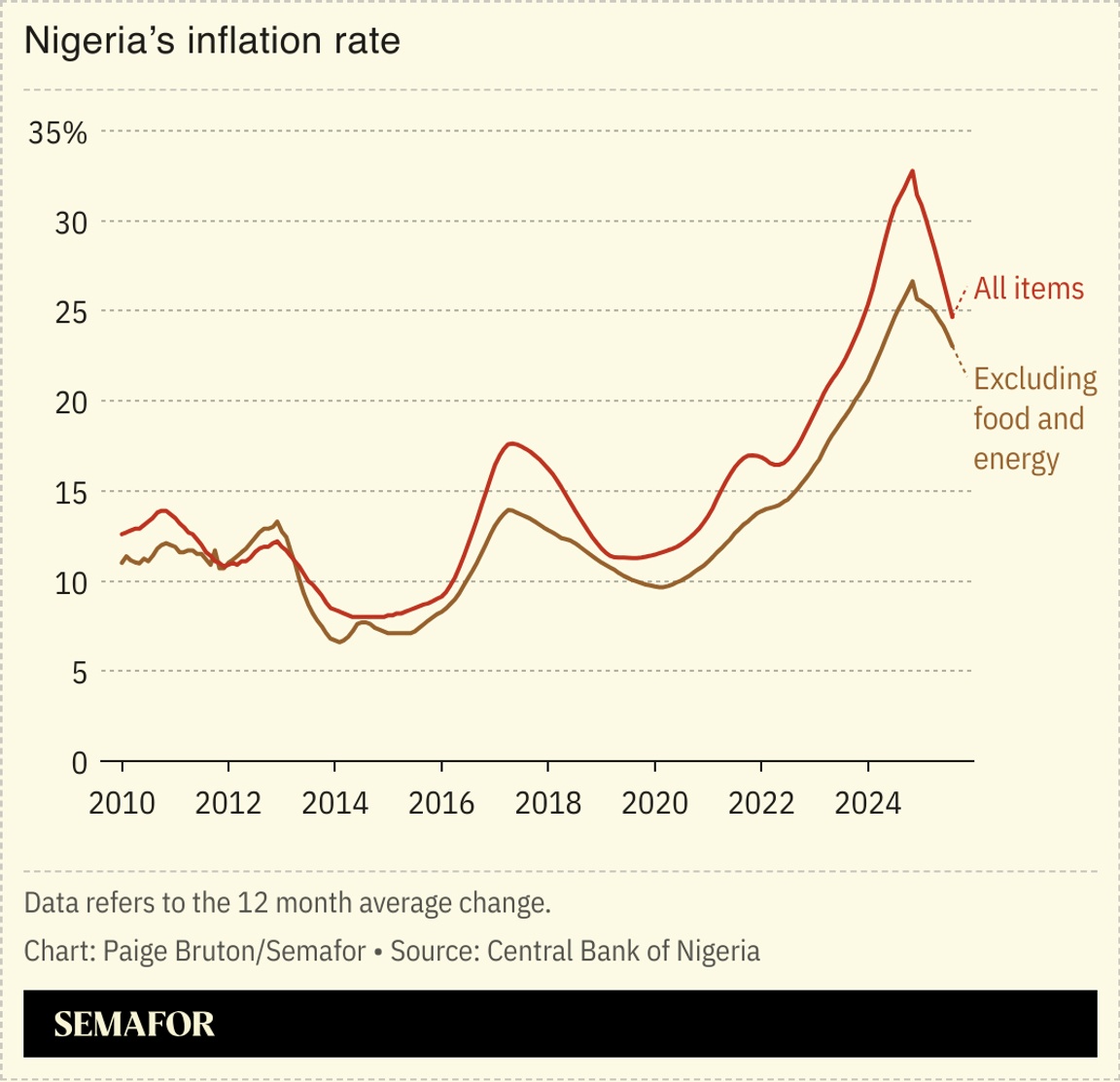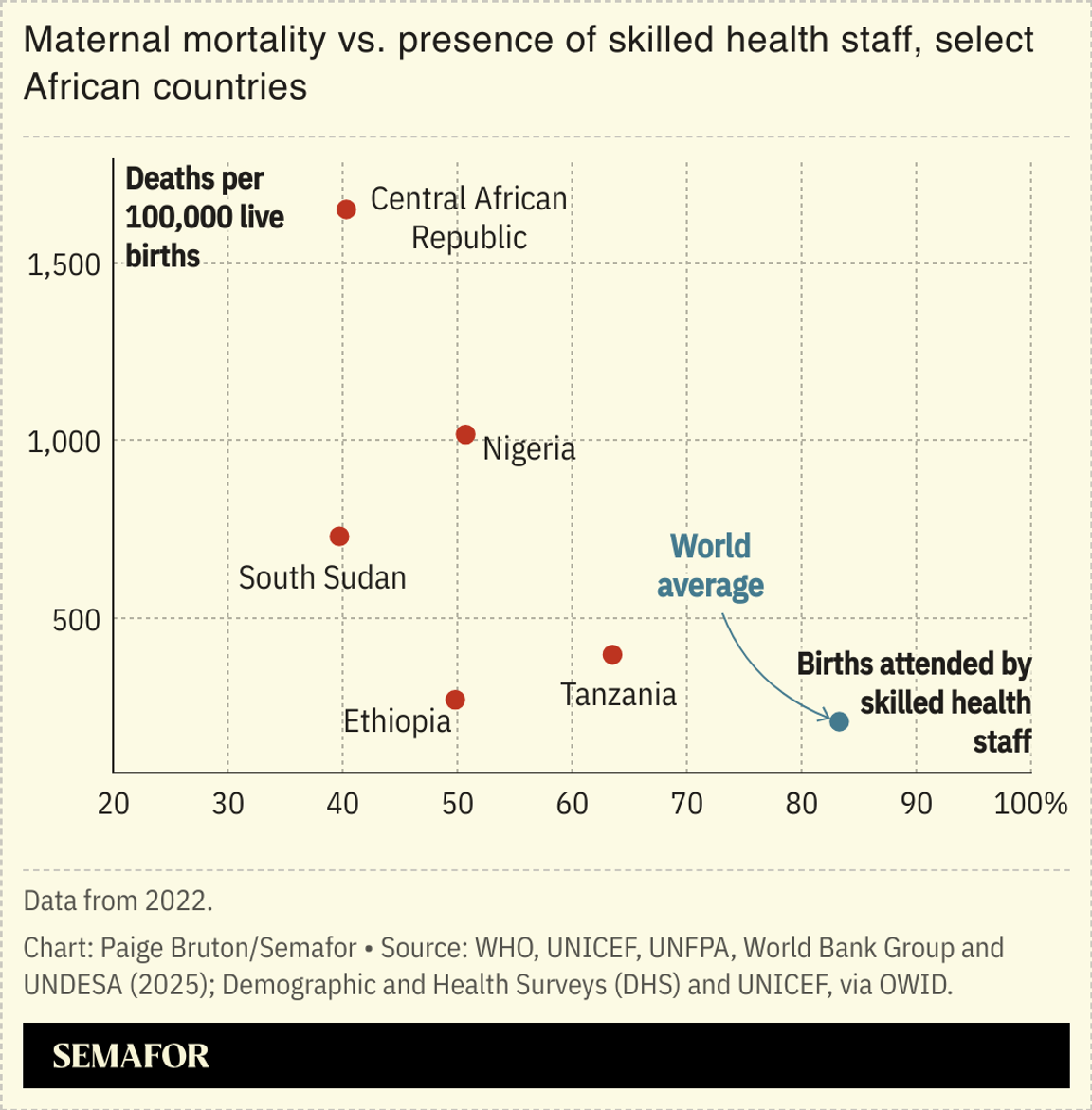| | In this edition: Nigeria urged to drop import bans, a new women’s health fund, and a genetic adaptat͏ ͏ ͏ ͏ ͏ ͏ |
| |  | Africa |  |
| |
|
 - Push to drop import bans
- New digital payments system
- Revised imports projection
- Mali’s fuel blockade
- New women’s health fund
- UNESCO elects new boss
- Weekend Reads
 How a genetic variation helped Kenya’s Turkana adapt to their environment. |
|
 Two upcoming elections showcase a persistent tension across Africa: The world’s youngest continent is ruled by its oldest leaders. And, in many cases, they’re staying in power for decades. Cameroon’s President Paul Biya, in office for 43 years, is chasing an eighth term in Sunday’s election at the age of 92. And, in two weeks, Côte d’Ivoire will give its verdict on 83-year-old President Alassane Ouattara’s bid to win a fourth term at the helm of Francophone West Africa’s largest economy. They aren’t outliers: Five sitting African heads of state have each been in power for more than three decades. Malawi swore in an 85-year-old president last week. I’m not a young man, but even I have childhood memories of my parents discussing Yoweri Museveni’s role in African politics. The 81-year-old, Uganda’s president for 40 years, will contest an election early next year. Biya, Museveni, Outtara, and others have held on to power by undermining political dissent. But elections could act as a lightning rod for frustration over political repression to tip over into unrest. Cameroon, with its longstanding Anglophone separatist insurgency and jihadists forcing thousands to flee their homes, is particularly at risk. Young people in a country where the median age is 19 could look around the continent, to Gen Z protests in Madagascar — or recent unrest in Kenya and Morocco — for inspiration. So much of our reporting hinges on the opportunities created by Africa’s demographic dividend compared with the West’s aging populations. The danger is that “leaders for life” are blocking the fresh thinking that could unlock economic development. |
|
Nigeria urged to end import bans |
| |  | Alexander Onukwue |
| |
 The World Bank urged Nigeria to end import bans in order to lower food prices as it estimated that around 50% more Nigerians were living in poverty than six years ago. Nigeria’s economy grew 3.9% in the first half of this year, compared to 3.4% in the same period in 2024, the bank said in an assessment this week. Growth improved due to government interventions such as subsidy removals, which have resulted in higher revenues, a stronger naira, rising foreign reserves, and an increase in exports. But 139 million people are estimated to be living in poverty this year — 60% of the population — compared to 81 million in 2019: “Recent reforms are correcting past policy missteps, but meaningful improvements in livelihoods will hinge on sustained disinflation, stronger inclusive growth, better public services, and continuous targeted support to the most vulnerable,” said the report. Despite falling for five consecutive months, inflation remains high at 20.1%, and an increasing number of Nigerians are unable to buy food. Import barriers, introduced by successive administrations to protect local industry, have created “extraordinarily high tariffs” that are stifling the availability of food staples, the bank warned. |
|
New digital payments system |
 Tobacco on sale in Lilongwe. Amos Gumulira/AFP via Getty Images. Tobacco on sale in Lilongwe. Amos Gumulira/AFP via Getty Images.The Common Market for Eastern and Southern Africa, a 21-member trade bloc, launched a digital payments system in a bid to cut transaction costs. The move by COMESA, which covers nearly two-thirds of Africa’s territory, is part of a broader push to roll out local currency payment systems to reduce dependence on the dollar in regional trade. The new platform is launching with trials between Malawi and Zambia, COMESA said. Boosting intra-African trade is widely seen as a key facet of strengthening economic development across the continent. The African Continental Free Trade Area, which became the world’s largest free trade area in 2018, helped to push the value of intra-African transactions to $81 billion in 2023 from $69 billion in 2019. But cross-border deals still only accounted for “a paltry 14.4%” of Africa’s formal trade in 2024, Afreximbank said in a recent report. — Alexis |
|
African imports grow despite tariffs |
 The forecasted value of import growth to Africa, revised up from 6.5%, according to a recent report by the World Trade Organization — marking the fastest growth of any region so far this year. The forecast for Africa’s export growth also surged to 6.5% from just 0.6%. The results indicate that global trade with Africa has been more resilient than economists had predicted following the imposition of US tariffs, with the continent’s largest international exporter — South Africa — still facing 30% tariffs on exports to the US. Instead, globally, trading activity is high, due to the frontloading of imports in the US in anticipation of higher tariffs, as well as factors like disinflation, supportive fiscal policies, and strong growth in emerging markets, the report said. But the forecasts for 2026 were less positive: African imports are predicted to fall 5.4%, worse than the forecasted world average of a 0.5% decline. — Paige Bruton |
|
Mali fuel blockade hits economy |
 Idriss Sangare/Reuters Idriss Sangare/ReutersA month-long blockade on fuel imports to Mali’s capital Bamako by al-Qaida-linked insurgents is hitting the landlocked West African country’s economy. Businesses are being forced to shut down and residents face lengthy queues and price hikes at petrol stations, with the junta-run government trying to bring in fuel supplies under army escort. Several analysts have noted that the militants are trying to undermine the government’s legitimacy and stoke public discontent as they widen their reach across Mali amid a longstanding crisis in which different insurgent groups have vied for control of major cities since 2012. Islamist insurgents have since May attacked Malian and foreign-owned businesses, including cement factories, sugar factories, and mines. Multinational miners including Barrick Mining and B2Gold operate in the country, which is one of Africa’s biggest gold producers. |
|
 A new $70 million global fund was launched to focus on women’s health. The Women’s Health Co-Lab, backed by philanthropists including Melinda French Gates, aims to mobilize a further $30 million to put toward three key areas that have been among the hardest hit by the Trump administration’s cuts to USAID — maternal health, sexual and reproductive health and rights, and gender-based violence. The fund, managed by the philanthropy arm of global investment firm ICONIQ and philanthropic organization Co-Impact, will support 22 organizations over the next three years including five in Africa. “Global aid is shrinking and it’s women and girls — especially in Africa — that are being disproportionately impacted as health inequalities grow,” Co-Impact CEO Olivia Leland told Semafor. By “pooling philanthropic capital to back local leaders” the fund hopes to deliver “impact that no funder could achieve alone,” she added. — Preeti Jha |
|
Person of Interest: Khaled El-Enany |
 Mohamed Abd El Ghany/Reuters Mohamed Abd El Ghany/ReutersEgypt’s Khaled El-Enany was elected as the new head of the UN’s cultural and education agency, the first person from an Arab country and the second from an African nation to be named director-general. The former Egyptian tourism and antiquities minister won a landslide against his rival Firmin Edouard Matoko, a veteran diplomat and economist from Congo Brazzaville. El-Enany’s nomination now awaits approval from UNESCO’s 194 member states on Nov. 6. The 54-year old currently works as professor of Egyptology at Helwan University in Greater Cairo, focusing on the civilization and archaeology of ancient Egypt. “I stand before you with humility and gratitude,” El-Enany said on hearing the results, after what Le Monde described as “a heated campaign.” The professor takes on the job at a critical moment in UNESCO’s history — with the US announcing it will withdraw from the organization by December 2026 — and has said fundraising will be his “number one priority.” |
|
 - Tanzanian President Samia Suluhu Hassan has ushered in a new era of authoritarianism in the lead-up to October’s presidential elections, a politics professor argues in The Conversation. The country’s main opposition leader, Tundu Lissu, is on trial for treason, and his party has been barred from contesting in the vote. The most vocal government critic in Hassan’s own party has been abducted. Though Hassan’s predecessor, Pombe Magufuli, was known for his electoral repression, the current president “has picked up where Magufuli left off,” Dan Paget argues.
- Pressure from China is putting significant strain on South Africa’s relationship with Taiwan, Antony Sguazzin reports for Bloomberg. While Pretoria and Taipei formally cut ties decades ago, a notice was given to Oliver Liao, Taiwan’s senior representative in South Africa, in April to move his office from the South African capital to Johannesburg. The diplomatic skirmish demonstrates how Taiwan is increasingly being squeezed out on the world stage, Sguazzin argues, particularly as some African nations are moving away from the US and seeking a closer relationship with Beijing.
- In Cameroon, Côte d’Ivoire, and Togo, hairdressers are being trained to listen and comfort clients who may be suffering from poor mental health, Eromo Egbejule writes in The Guardian. On the continent as a whole, therapy is in critically short supply, and that gap has historically been filled informally by some community members, like hairdressers. Providing a free, intensive three-day training session with psychiatrists and mental health experts, the nonprofit Heal by Hair seeks to formalize that relationship: “The trust is already there,” the NGO’s founder said.
- Three museums designed by British-Ghanaian architect David Adjaye are opening in the coming months, but Adjaye’s input is being downplayed, Alex Marshall writes for The New York Times. Since the architect — who designed the National Museum of African American History and Culture in Washington — was accused of sexual assault and misconduct by three women in 2023, several projects have cut ties with him, while others have continued to work with him in a more low-key manner. Adjaye has denied the accusations against him. One institution that recently commissioned Adjaye for a project in South Africa told The Times they felt a responsibility to “not condemn David into oblivion.”
- Beijing sponsored several Kenyan social media influencers to visit China, part of a push to increase its soft power on the continent, Jevans Nyabiage reports for the South China Morning Post. The sponsored tour program, now in its second year, forms part of China’s growing media engagement strategy in Africa amid its broader “geopolitical competition with the West,” one University of Johannesburg researcher told the outlet.
|
|
|